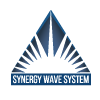LEADERS
in Solar Energy

Solar Inverters Buyer’s guide: Real Cost Savers or Not?
Solar Inverters Buyer’s guide: Real Cost Savers or Not?
Power cut is an issue that each one of us has been affected by. In tier 2 and 3 areas, there is a problem of frequent power-cuts. One of the many reasons is uneven power distribution and excessive load on the grids, causing regular power cuts. It is the end user who has to bear the brunt and has to decide on an alternative. Inverters are a preferred option by most people who make up for frequent power cuts.
Using solar inverters is increasingly becoming a better option to combat the issue of electricity. These inverters are charged by the energy generated by the sun and are great in reducing running electricity charges on a regular basis.
What is a solar inverter?
It is an essential element of solar power set up for homes. It changes the Direct Current (DC) to the Alternating Current (AC). Without this, the solar power system will not have the capacity to light the entire houses.
Types of solar inverters
There are different types of solar inverters available in the market:
▪ Sine Wave Inverter:
These solar inverters generate sine waves for which the majority of the appliances are designed. Most of the appliances can run safely and effectively on these types.
▪ Square Wave Inverter:
It is commonly known as a Digital Inverter. It generates the square wave AC output that isn’t sufficient for all types of home appliances as the appliances are suitable for sine wave AC pattern only. This type of inverter is not recommended for homes as not all devices can be supported by it.
▪ Stepped Sine Wave Inverter:
It falls between the above two types of inverters. It is not widely available in the market. It is a type of low-cost inverter and mostly suitable for electronic gadgets.
Power requirements
Before purchasing an inverter it is advisable to calculate the power requirements. Normal inverters can be ideal for using fans and lights. However, the heaviest battery inverters can also support AC and TV as they require a heavy load. In such cases, inverters with high capacity solar panels are an ideal choice. Solar energy inverters are highly efficient when operating on high load.
Points to remember when buying a solar inverter
▪ Size of the inverter: The inverter should be able to handle maximum power that the solar system can generate efficiently and effectively. If one requires a 5kW solar power system, they need a 5kW panel and inverter to be able to handle it.
▪ Weatherproof: Not all solar inverters are weatherproof and may require an extra weatherproof cage, which comes at an additional cost.
▪ Warranty: Mostly solar inverters have a warranty of 5 to 12 years. Longer the warranty, more the protection.
Since the price of solar equipment has dropped significantly in the last five years, it is advisable to switch to solar inverters. With the advancement in technology, the performance of the solar panels is highly efficient, leading to a reduction in costs.
